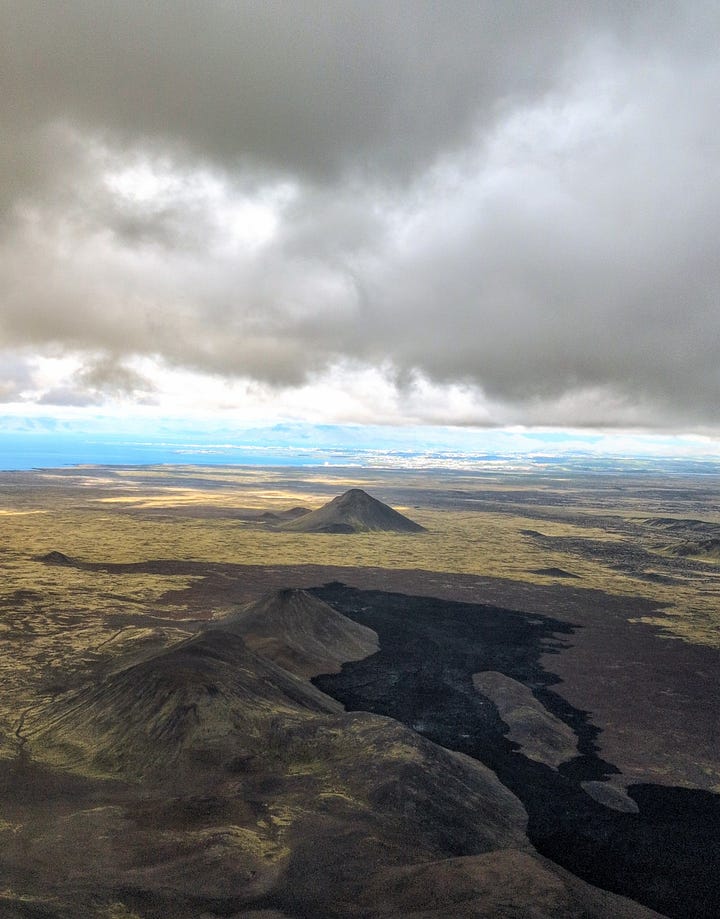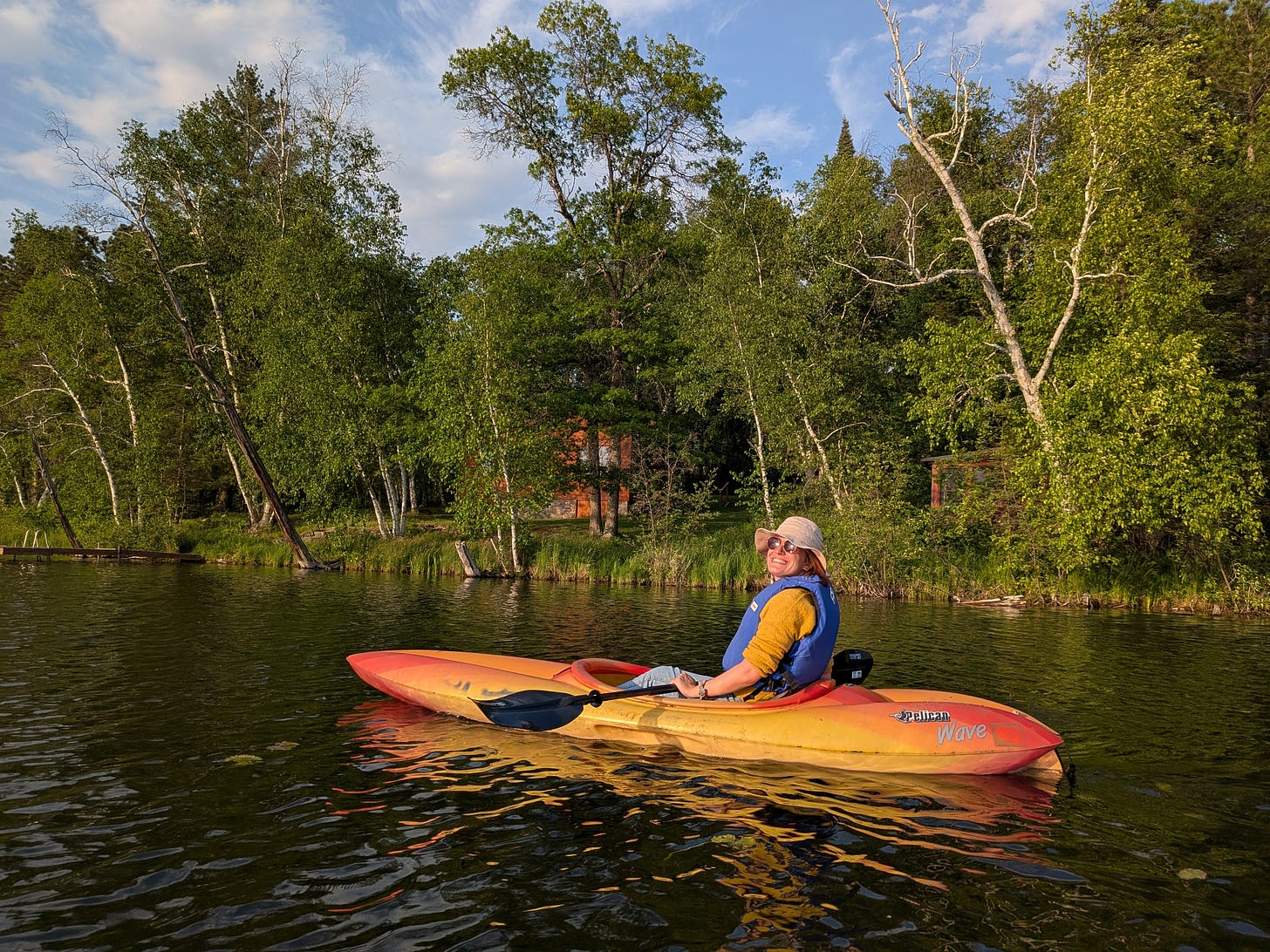Another Country
On reading Baldwin on a trip home to the United States. (Caution: may contain spoilers!)
It’s the fourth of July in the United States, so I thought I’d post a piece I’ve been working on for some time about the sensation — familiar, I imagine, to more and more of us — of traveling back to the US and feeling like a foreigner. Thank you for reading!
Just over a third of the way through James Baldwin's classic Another Country, Eric — an up-and-coming American actor, and one of several main characters of the novel — is offered a choice: come home to the country he was born in and had left, that is to say the United States, or "transform his sojourn into exile."
Later, in New York, Eric will be at a bar where he will notice eyes on him. "He was, indeed beginning to attract a certain, covert attention; he did not look American, exactly; they were wondering how to place him," Baldwin writes. Throughout Another Country, Eric's feeling of no longer fitting in, no longer understanding the unspoken codes that dictate American society and culture, permeates. Eric has come home after three years, but it's easy to tell: he's lost.
When, a few weeks ago, I walked into an American sports bar, I felt those same eyes zero in on me. For a short pause, it was as if the bar had gone silent; then, just as quickly, the sounds of the televised college baseball, and conversations seemed to pick back up as my friend and I sat down at a booth. For them, the moment ended there — two strangers, or at least one, interrupting their Sunday meal — but for me, the experience made concrete a feeling I had been grappling with since my plane had landed in the United States a couple of weeks prior.
In many ways, I’d been feeling like Eric. I felt like a stranger in my homeland.
* * *
“Americans are very different when in their own country,” Yves, Eric’s French love interest, says in Another Country, as Eric is planning his trip back home to New York. Yves worries that New York might change Eric, and thus, irrevocably, their relationship.
As I read this novel, I kept wondering: why did Eric come back to the US? Then: Why did I come back?
I landed in St. Paul, Minnesota in late May, at a moment of great personal transformation. I had just announced to my team at work in Paris my intention to leave my full-time job at the end of the following month to pursue my career as an independent journalist. I had already been planning a trip to the United States, and my first to its grassy heartland in nearly a decade, for some time, but the decision to quit my job opened up another possibility. What if I stayed for a while?
So on May 29 – Ascension Day – my fiancée Diane and I left Paris for the American Midwest. Each time I travel home, the United States feels a bit further away. Staring out the window onto the craters and volcanoes of Iceland, where we touched down for a short layover, I felt the alienness of that lunar landscape; similar, but so different than my feeling of alienation from the United States — in a more metaphorical sense. At US customs a few hours later, the kind-eyed officer questioned me about why I had decided to live in France. “So, do you just feel like you identify with the lifestyle over there more than here?” he asked. “Something like that,” I replied.


When, and how, does a sojourn become an exile?
All of the characters in Baldwin’s Another Country find themselves — in very different ways — exiled from something or someone.
The book, published in 1961, follows a group of friends in New York City whose lives are steeped in the underworld of the day: jazz clubs, endless booze, and a lot of sex. There’s Rufus, a down-on-his-luck African-American musician; Ida, his sister — beautiful, talented but stuck in a dead-end waitressing job; Cass and Richard, a white heterosexual couple navigating the pains of for one of them, quick fame, and for the other, motherhood and fidelity. There’s also Vivaldo, a floundering Italian-American writer; and of course Eric and Yves, the American expat and his French lover.
For some of them, exile is chosen (or imposed) because of their sexual preference; for others their skin color, or their gender, or both.
Rufus, who is perhaps the most tragic of the six main characters, feels exiled from New York City itself. “He felt totally estranged from the city in which he had been born; this city for which he sometimes felt a kind of stony affection because it was all he knew of home,” Baldwin writes.
Eric is exiled on account of his being gay. Though he tries to convince himself otherwise by having a fling with Cass, he ultimately realises the futility of that relationship. The book ends with him meeting Yves at the airport, a hopeful note in an otherwise quite bleak novel.
I could have guessed, when I picked up the book several months back, that the novel might be about exile. James Baldwin, who lived most of his adult life outside of the US, wrote most of Another Country in Istanbul. He also lived in Paris, and in the south of France. And so I had saved reading this novel for this three-week trip to the United States. That one of the greatest chroniclers of American life, and American ills, lived most of his life outside of the United States shouldn’t come as a surprise. Sometimes you have to leave a place behind to better understand it.
* * *
The first leg of my journey was to St. Paul, Minnesota. I was traveling back for my ten-year college reunion, with Diane, who is French and eternally curious about the state I had talked about so much in our five years together. I wanted to show her around the lakes, for her to get lost in the layers of endless blue of Lake Superior, to go kayaking, and to hear the haunting call of a loon (Minnesota’s state bird) — but I also wanted to show her a part of myself that she hadn’t yet seen. When I arrived, I discovered a forgotten part of myself, too — something that hinted at Baldwin’s questions, and mine.
When I moved to France nearly a decade ago, in 2015, I had left a box of my belongings in my aunt and uncle's attic. The cardboard box was packed as if by someone who planned to return soon. There were newspaper clippings, journals, class notes, lists of words in Spanish and French, postcards: it was chaotic, loose, unplanned. I must have given my aunt and uncle the box in a moment of panic at the end of the semester, and told them something along the lines of “I’ll pick this up soon.” Then, as I navigated the turbulent start of adult life, I completely lost track of it.
At the end of my undergraduate studies, after spending a summer in the Twin Cities, I moved to France for the first time — leaving the box, and that particularly collegiate version of myself behind me. I had been selected for a teaching assistantship, and would be spending a year in Toulouse, in the terracotta hills of the Occitanie region. It was here that I got my first glimpse of what it might feel like to live abroad. I worked eight class hours a week for a paltry sum of 800 euros a month, but I was happy. I made new friends, improved my French, and traveled across Europe. I discovered the joys of meeting strangers in ride shares to Barcelona, slept on a night ferry to Ireland amid the noise of slot machines and the glare of fluorescent lights, and ended up staying a few weeks with my girlfriend in Galicia, in northeastern Spain, where I spent slow days applying for jobs while staring out at the endless, torrential rain and nights getting drunk on cheap Spanish wine.
Then I moved to New York and got caught up in the rush of that city for two years. For a little while I forgot about France, just as I had about the box in the attic in Minneapolis. Like Eric, I began to blend back into my own country, and tried to make it as a writer in America.
But after my first sojourn in Europe, I never felt completely at home again. In some ways, New York is not really the United States. It’s walkable (more or less), culturally rich, and entirely cosmopolitan. Like the rest of the country, though, it’s also intensely capitalistic, big, expensive, and all-consuming. In Another Country, Baldwin describes the city in summer: “The heat and the noise began their destruction on nerves and sanity and private lives and love affairs. It was a city without oases, run entirely, insofar, at least, as human perception could tell, for money; and its citizens seemed to have lost entirely any sense of their right to renew themselves. Whoever in New York attempted to cling to this right, lived in New York in exile.”
Again, that pesky feeling of exile.
Expat or exile? Can you flee a country that didn’t kick you out?
The next time I left New York, the departure felt permanent. It was August 2018 and I was giving up my ninth-floor apartment in Crown Heights with a view of Manhattan, a job at a non-profit, and my girlfriend, who had decided to try to make it as a filmmaker in New York City (and is currently successfully doing so!). This time I was leaving to pursue a two-year graduate program at Sciences Po, in Paris.
I didn’t feel like an exile because I knew I could always come back to the United States. I knew that I could take a plane to JFK and that the customs agent would look at my passport, look at my face and mumble “Welcome home.”
But each time I came back, I felt a little bit less like an American. So, when the Trump administration started to turn back or detain European researchers, scientists, and tourists, I began to wonder, for the first time since leaving there, whether they might turn me away too. And in that moment, I felt more European than American. So maybe exile is not being kicked out of a country, but living with uncertainty over whether you’ll be let back into it when you leave.
The opposite can be true too. When Yves, Eric’s French partner in Another Country, does finally decide to come to the United States to join Eric, for a moment he questions his decision and is confronted with his own Frenchness. “But now, on the ground, and in the light, hard and American, of sober second thought, it all seemed rather suspect. He felt helplessly French, and he had never felt French before,” Baldwin writes.
* * *
On my last night in Minnesota, I sat on the floor of my cousin’s old room with the box I had left there ten years prior, reading through some documents, scanning others and recycling the originals. The next day, a friend and I were planning to take a road trip down to the US-Mexico border in Laredo, Texas (to research the subject of a future post) and I needed to filter through its contexts.
The previous few days of reconnecting with former classmates and telling my life story over and over again had been both gratifying and exhausting. I felt like a different person than I had been when I left college, so it was at times hard to square that old version of me with the one who had come for the reunion. Reading through my old college essays about Frantz Fanon, about digital revolutions, and some of my very first pieces of narrative nonfiction and journalistic writing, though, I saw how much I had in common with the person I am today. Just some of the details have changed.
I think Baldwin might have agreed with me that the process of exile is not so much about fully leaving one place for another, but rather leaving parts of yourself in different places, and putting those disparate pieces back together in a new way each time you land. It’s about seeing your own country as well as others with fresh eyes.
The last time I was in New York, my friend Anandi and I went to the Brooklyn Public Library for a temporary exhibition on Baldwin’s years in Istanbul. I loved the photos of Baldwin taken by Sedat Pakay, because they captured the writer in a new light. Baldwin looked happy, at ease, in this place that definitely wasn’t the United States but wasn’t really Europe, either. It was here that he did some of his best writing, including Another Country.
In an intro to the exhibit, Tavia Nyong’o recognizes as much: “Baldwin attested that sometimes you must leave home to see it clearly – and sometimes it takes a stranger to show us who we really are.”







Great piece of writing. Thank you. I am first generation American with both parents being of Italian decent and since I was young, I often feel misplaced in America. I've lived here my entire life, but I know that's only because my parents made one choice that changed all of our lives. That feeling of having one foot in each land is very familiar to me.
I sense the rumblings of a book…